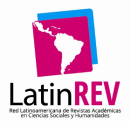Narratives of intersectional inequality in teacher education. Teachers who study and work
DOI:
https://doi.org/10.54871/cl4c600eKeywords:
gender, teacher training, interculturality, social inequality, higher educationAbstract
This document presents an intersectional analysis of educational inequality in the training of female educators from the perspectives of Latin Americanist and Black feminist theories. It unveils the conditions under which teachers pursue higher education in two regions of the country: south of Mexico City and Los Altos in Chiapas. Through sociocultural perspective, autobiographical narrative and in-depth interviews, intersectional theory generated categories on the interweaving of domains of oppression: structural, disciplinary, hegemonic, interpersonal and intrapersonal. These oppressions generate specific conditions for them individually but also collectively. The transversal analytical line reveals the tactics used by teachers to attempt to counteract the effects of domination and inequality within the race/gender/class system.
Downloads
References
Barthes, Roland (1986). El acto de escuchar. En Lo obvio y lo obtuso. Barcelona: Paidós.
Brah, Avtar (2011). Cartografía de la diáspora: identidades en cuestión. Madrid: Traficantes de Sueños.
Catani, Michell (1984). De l´enseignement centré sur l’écoute et l´expression de soi á l´approche biographique. Education Permanent, 72-73. http://www.education-permanente.fr/public/articles/articles.php?id_revue=72
Collins, Patricia (2020). Black Feminist Thought: Knowledge, Consciousness and the Politics of Empowerment. Nueva York: Routledge.
Crenshaw, Kimberlé (1989). Demarginalizing the intersection of race and sex: A Black feminist critique of antidiscrimination doctrine, feminist theory, and antiracist politics. The University of Chicago Legal Forum, 140, 139-141.
Bolívar, Antonio y Domingo, Juan (2006). La investigación biográfica narrativa en Iberoamérica. Campos de desarrollo y estado actual. En Revista Forum Qualitative Social Research, 7(4), Art. 12.
Bourdieu, Pierre (1998). La dominación masculina. Madrid: Anagrama.
De Certeau, Michel (2000). La invención de lo cotidiano: artes de hacer Volumen I. México: Universidad Iberoamericana.
Haraway, Donna (1997). Female Man Meets Onco Mouse: Feminism and Technoscience. Nueva York: Routledge.
Mohanty, Chandra (1984). Descolonizando el feminismo. Teorías y prácticas desde los márgenes. Madrid: Cátedra.
Lugones, María (2012). Subjetividad esclava, colonialidad de género, marginalidad y opresiones múltiples. En Los feminismos en Bolivia. La Paz: Conexión Fondo de emancipación.
Saldívar, Antonio y Stephen Keck (2016). Una mirada a la formación docente desde la experiencia: una apuesta por el no-futuro de la educación. Sinética, 47. https://sinectica.iteso.mx/index.php/SINECTICA/article/view/638
Segato, Rita. (2020). Nombrar el género y a la raza [video]. Facultad Libre. YouTube. https://youtu.be/qWsYuSWX_WU
Solís, Ana (2021). Mujeres docentes, formación profesional y condición laboral. Análisis interseccional en la universidad pedagógica nacional. Tesis doctoral. Centro de Estudios Superiores de México y Centroamérica. Universidad de Alicante, España. http://rua.ua.es/dspace/handle/10045/121536
Ruiz, Marisa (2016). Aproximaciones a los estudios críticos feministas en México y Centroamérica. Clepsydra: Revista de Estudios de Género y Teoría Feminista, (15), 11-33. https://riull.ull.es/xmlui/handle/915/6308
Urías, Beatriz (2014). El racismo y el clasismo: dos formas de discriminación en el México contemporáneo. Eutopía. Revista del Colegio de Ciencias y Humanidades para el Bachillerato, (20), 6-9. http://revistas.unam.mx/index.php/eutopia/article/view/47094/42394
Downloads
Published
How to Cite
Issue
Section
License
Copyright (c) 2024 Ana Magdalena Solís

This work is licensed under a Creative Commons Attribution-NonCommercial-ShareAlike 4.0 International License.








